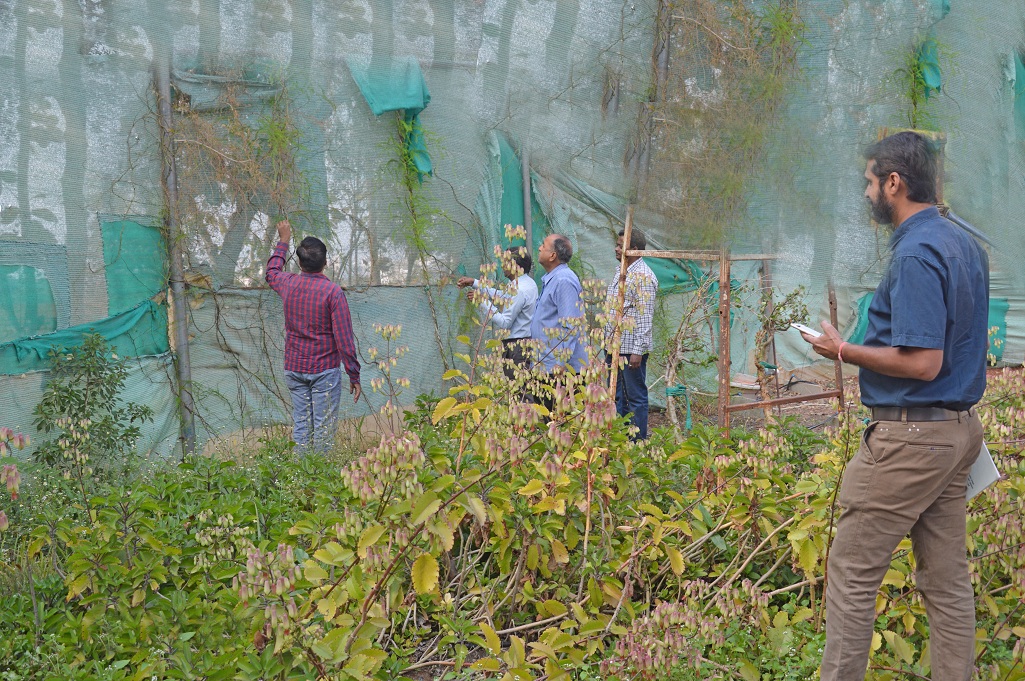Project - Neat Clean and Green Campus
Environmental stewardship is a shared responsibility for protecting the environment and minimizing the impact of our daily decisions. Shri Sant Gajanan Maharaj College of Engineering (SSGMCE) is committed to reduce our environmental impact and ensure environmental sustainability. The SSGMCE Green Office Policy promotes innovative approaches to environmental action among staff and its stakeholders. SSGMCE strives to improve the environmental performance on regular time intervals for the global fight against climate change.Project information
Green Office Policy
“Our Commitment to the Environment”
Environmental stewardship is a shared responsibility for protecting the environment and minimizing the impact of our daily decisions. Shri Sant Gajanan Maharaj College of Engineering (SSGMCE) is committed to reduce our environmental impact and ensure environmental sustainability. The SSGMCE Green Office Policy promotes innovative approaches to environmental action among staff and its stakeholders. SSGMCE strives to improve the environmental performance on regular time interval for the global fight on climate change.
We have Green Cell constituted at our institute. We at SSGMCE try to follows green policies towards our commitment to the environment, through the adoption of simple practices. Whenever possible, SSGMCE staff will:
Use Recycling Bins
• Position recycling bins throughout the office and conference rooms for paper, plastic and other recyclable containers.
• Recycle office equipment, supplies and other recyclable products.
Waste Management
• Implement an office “swap closet” for exchanging office supplies, particularly during the transition between former and new employees.
• Donate leftover food and beverages to local food banks following meetings/events.
Water Use
• Promote and provide tap water and avoid the use of bottled water during meetings.
Paper Use
• Make every effort to use the recycle bins located in the cubicles, hallways, and canteen.
• Maximize printing and copying options and enable default settings to double-sided printing.
• Edit documents using word processing tools (as opposed to printing).
• Post electronic meeting agendas and avoid printing hard copies of meeting materials for participants.
• Conserve paper and cut costs by emailing documents in place of sending them in hard copies.
• Save used, one-sided printer paper in designated areas and reuse for note paper.
• Set all page margins as minimum as possible and keep font size minimum enough so as to read document comfortable
Energy Conservation
• Enable and set to default the eco-friendly options on all copiers, printers and other electronic equipment.
• Enable timers for office copiers and printers that will automatically turn off unused equipment/use energy saving modes after long periods of inactivity.
• Continue to use and properly dispose of compact fluorescent light bulbs.
• Arrange for cleaning staff to turn off lights left on after hours.
• Continue to promote the SSGMCE Healthy Foods policy and encourage the purchase and consumption of local, organic foods that require minimal energy for transport and production.
• Turn off unused lights in cubicles and hall ways.
• Use additional lighting only when necessary.
• Continue the practice of equipping low-traffic areas with automatic light sensors.
• Program their computer monitors to turn off automatically after periods of inactivity. Employees can activate this function by going to Start →Settings →Control Panel →Performance and Maintenance →Power Options. Employees should set a time (.e.g. 20 minutes) for the entry ‘turn off monitor.’
• Disable screensavers in an attempt to conserve energy and reduce the amount of wear and tear on their computers.
Purchasing
• Establish procurement contracts with companies offering environmentally preferable purchasing options.
• Continue to purchase office paper that uses 30% or more post-consumer waste.
• Remain committed to purchasing recycled/biodegradable products, including paper plates, napkins, paper towels, and other kitchen supplies.
• Purchase organic, locally-grown foods that require minimal energy for transport and production.
Meeting Planning
• Eliminate bottled water, in favor of pitchers of tap or filtered water.
• Choose regional, seasonal and/or organic options and donate leftover food from catered meals to local shelters.
• Minimize disposable products and encourage the use of biodegradable and reusable products, including dining items.
• Make sure recycling bins are easily accessible at meals and breaks if there will be recyclable materials present.
• Consider public transportation options, the city or region’s conservation projects, “walk ability,” smoke-free policies, and food polices when selecting a location.
• Support facilities with recycling programs, efficient water use equipment, and other green initiatives.
• Arrange for room blocks to have linens changed only upon request and turn off AC/heat and lights when leaving your room for the day.
• Limit hard copy handouts and make programs and itineraries available online or on posted signage.
• Encourage a badge return at the end of the conference.
Transportation
• Use transportation options with minimal carbon emissions.
• Contract with environmentally sustainable taxi services.
Indoor Environment
• Request building services use biodegradable cleaners when cleaning office space.
• Ensure routine indoor air quality assessments are conducted and results reviewed by SSGMCE personnel
Nursery and Gardening
SSGMCE is beautiful campus surrounded by greenery. We have dedicated nursery and greenhouse with herbal plantation. The big trees like Neem, Wad, Pipal, Chinch, Goolmohor etc can be observed in the entire campus. The offices and buildings have landscaping gardens
In the green house/nursery we have planted following medicinal herbal plants
1. Brahmi
2. Ashwagandha
3. Shatawari
4. Aloevera
5. Amla
6. Moringa
7. Tulsi
8. Indian Bael (Bilva)
9. Cassia
10. Nilgiri and etc
 SSGMCE
SSGMCE
